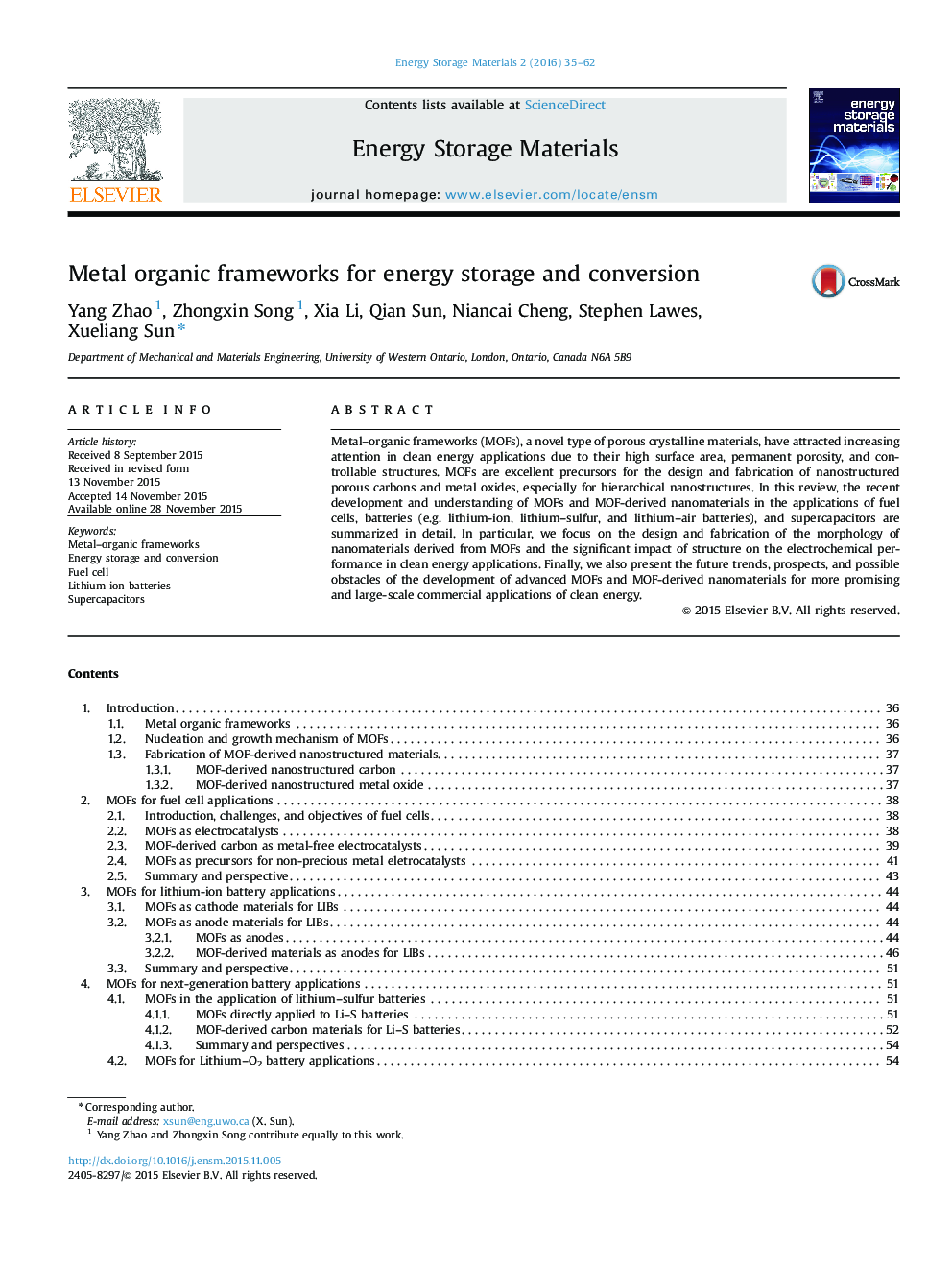| Article ID | Journal | Published Year | Pages | File Type |
|---|---|---|---|---|
| 1564573 | Energy Storage Materials | 2016 | 28 Pages |
Abstract
Metal-organic frameworks (MOFs), a novel type of porous crystalline materials, have attracted increasing attention in clean energy applications due to their high surface area, permanent porosity, and controllable structures. MOFs are excellent precursors for the design and fabrication of nanostructured porous carbons and metal oxides, especially for hierarchical nanostructures. In this review, the recent development and understanding of MOFs and MOF-derived nanomaterials in the applications of fuel cells, batteries (e.g. lithium-ion, lithium-sulfur, and lithium-air batteries), and supercapacitors are summarized in detail. In particular, we focus on the design and fabrication of the morphology of nanomaterials derived from MOFs and the significant impact of structure on the electrochemical performance in clean energy applications. Finally, we also present the future trends, prospects, and possible obstacles of the development of advanced MOFs and MOF-derived nanomaterials for more promising and large-scale commercial applications of clean energy.
Keywords
Related Topics
Physical Sciences and Engineering
Energy
Fuel Technology
Authors
Yang Zhao, Zhongxin Song, Xia Li, Qian Sun, Niancai Cheng, Stephen Lawes, Xueliang Sun,
